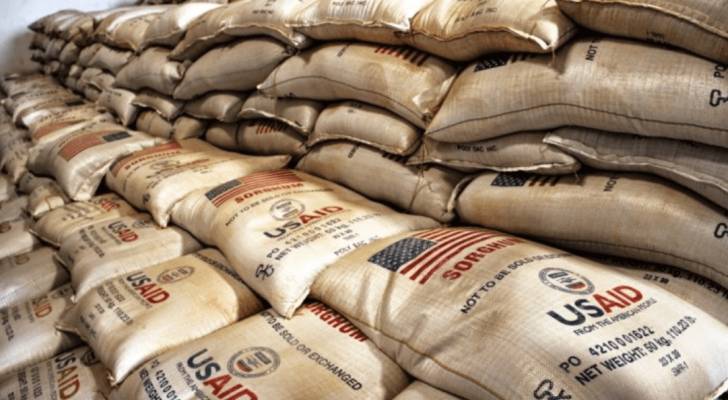USAID food assistance (Credit: USAID)
Trump administration to burn food meant for 1.5 million children
The Trump administration has ordered the destruction of nearly 500 metric tons of emergency food rather than sending it to starving populations abroad, according to a report by The Atlantic.
The stockpile, enough to feed an estimated 1.5 million children for a week, is set to expire, with plans already in place to burn it in the coming weeks.
The high-energy biscuits, purchased by USAID during the final months of the Biden administration at a cost of roughly USD 800,000, were intended for children in Afghanistan and Pakistan. These rations are designed to meet the full nutritional needs of children under five in disaster or war zones and are often used by the World Food Programme (WFP) as an immediate measure to support displaced families.
The biscuits were stored in a Dubai warehouse, awaiting distribution, but have been stuck there since January, when the Trump administration halted nearly all US foreign aid through an executive order. Career USAID staff repeatedly requested permission to ship the food before it spoiled, but according to two USAID employees, their memos went unanswered.
Decision-making authority was placed in the hands of political appointees after the dismantling of USAID by Elon Musk’s Department of Government Efficiency (DOGE). Initially, approval rested with Pete Marocco, a Trump-era official, and later with Jeremy Lewin, a young lawyer now overseeing both USAID and State Department aid operations. Neither provided authorization to move the food, aid workers said.
The destruction order directly contradicts public assurances from Secretary of State Marco Rubio, who told Congress in May that he would ensure food reached its intended recipients before expiring. By that time, however, the incineration order had already been signed. Taxpayers will now foot an additional USD 130,000 bill to destroy the biscuits.
“This is unprecedented,” said one longtime USAID worker, noting that typical food losses due to conflict or poor storage amount to only a few dozen tons a year.
The loss comes as global hunger surges. The WFP has warned that 58 million people face extreme hunger this year, while in Afghanistan, only one in 10 people in urgent need receives food aid. According to one USAID employee’s calculations, the biscuits slated for destruction could have fed every child facing acute food insecurity in Gaza for a full week.
The biscuits are part of a wider backlog. USAID records show more than 60,000 metric tons of food remain stuck in warehouses worldwide, including 36,000 pounds of peas, oil, and cereal stored in Djibouti for Sudan and the Horn of Africa. With many supply-chain experts and humanitarian workers laid off, even food that has not yet expired risks meeting the same fate.




